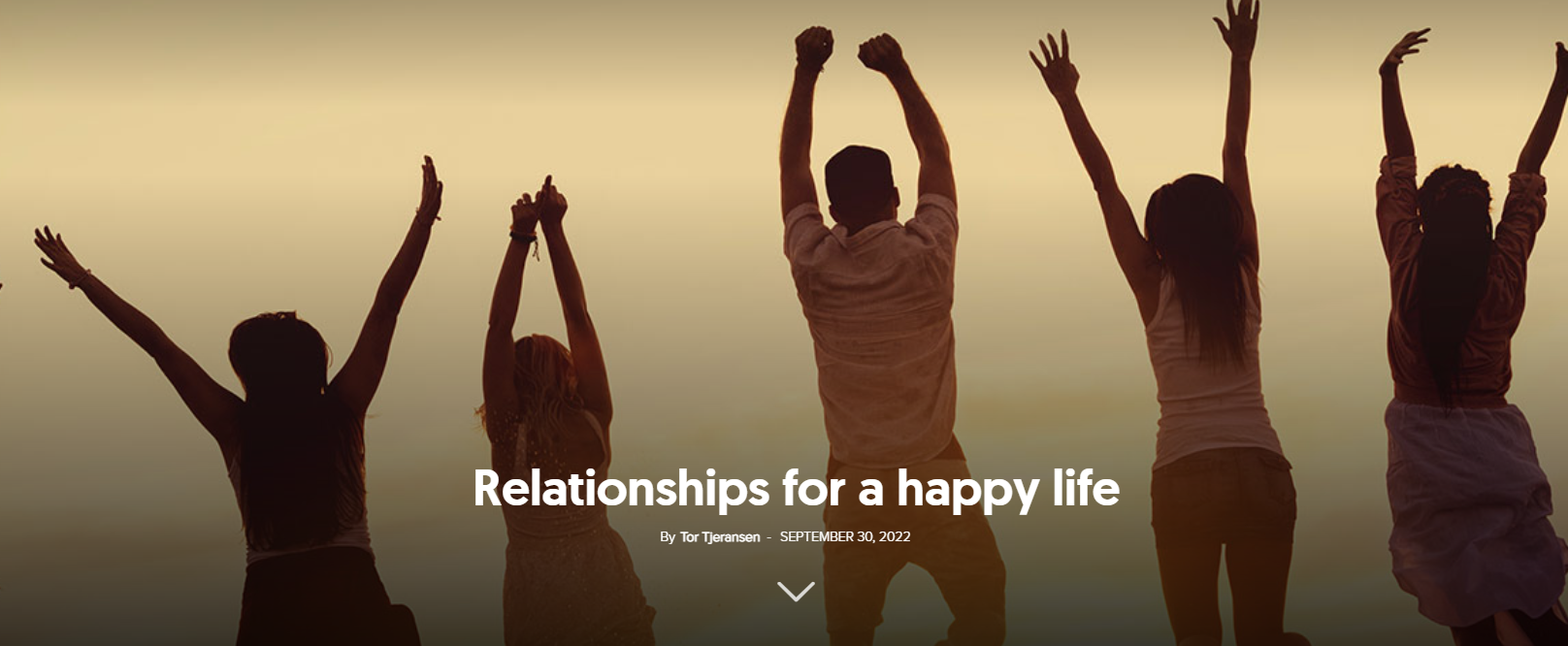Happiness is a song that we love but rarely sing anymore. It is that familiar children’s song that we sang all day every day when we were little. We loved its tune, and it loved us back. We used to live within that melody; it was our default mood. Life was essentially good and it was good to live our life in this way!
A song unsung
As we grew older, we lost access until we stopped singing the song altogether. And eventually we forgot the original melody and settled for cheap copies and remixes that promised a taste of what we thought we remembered as the taste of happiness. We called it fun. And chasing fun became our new purpose in life.
The problem with instant gratification? It wears off in no time. So, we went for the next hit: “amusing ourselves to death,” as Neil Postman so bluntly put it.
Sometimes our pursuit got interrupted, when we heard that old tune from very far away—mostly when we heard other people sing their song of happiness, who in some magical way hadn’t lost access to the secret song. Instead of searching for our own we attached ourselves to their story, sang along with their song and tried to consume other people’s happiness that was marketed everywhere: on radio and television, in music, advertisements and movies.
We became hooked. Look! Happiness is still around! Others have it—or pretended to (this notion was hidden to us and not always detectable). Of course, we had our suspicion that these “shiny happy people” (REM) were hiding another truth “behind blue eyes” (Limp Bizkit). It didn’t really matter: the substitute happiness was still the best we had. Right?
The truth
We can only pretend for so long. And if you can’t shake off the feeling that something isn’t quite right, what do you do? Turn inside: Often our bodies and souls bear witness to our deeper truths. And so, one day you might find yourself staring into the mirror and you can’t help but wonder: Who are you, really? Who have you become? Are you truly living the life you always longed for?
The saying goes: Children and drunks always speak the truth. Although we have plenty of evidence that alcohol is far from being a “truth serum,”[1] there is one specific case where both actually might speak the truth—albeit involuntary. I am talking about the classic children’s song “If You’re Happy and You Know it” which actually became a popular drinking song.
The origin of the song is somewhat obscure: while the melody seems to have originated in the 1930s, the pedagogical song became popular in 1960s America. In 1971, Jonico Music filed for copyright on this popular nursery rhyme, crediting it to Portuguese-American songwriter, lyricist and composer Joe Raposo.[2]
Curious as that might be, we might be on to something here. So, as we tune in let’s have a look at the different elements.
If
The song begins with the small inconspicuous word “If”. Just in case. These two small letters give the direction, and it is here where the spirits divide. Happiness is no constant state, it comes and goes. Sometimes you are and sometimes you aren’t. And it’s up to you to notice when you are. You might have pretty good reasons to be happy, so take a closer look at what makes you truly happy. And in case you are—rejoice in it.
The If also points us to the fleeting nature of happiness. It’s like it dares us: Catch me, if you can. Happiness can’t be presumed; it needs to be pursued. It is never a given, but it is given. Happiness can’t be forced, but it can be forged.[3] The proverb, “Everyone is the architect of his own happiness” can be rephrased as: It’s up to us, if we want to be happy and if we choose to be happy, to stay on course. However, in trying to catch happiness we can also get caught up.[4] We can only influence our happiness to a certain extent—experts estimate this to be around 50 percent.[5]
The best advice would be: if you come across the rare happiness butterfly, enjoy its presence and beauty and try not to touch its wings lest it can’t continue its flight. If you see a rainbow in the sky, enjoy its appearance and beautiful colors, but do not try to find the place where it originates. That remains a matter of perspective; just consider yourself lucky for the gift.
Happy
Happiness can be measured, researched, located, marketed and sold—full circle.
It is through our behavior that we indicate whether we are happy or not.[6] The Happiness Research Institute in Copenhagen, Denmark “uses global survey data to report how people evaluate their own lives in more than 150 countries worldwide.”[7]
Research on happiness has been done since the 1960s and has been conducted in a wide variety of scientific disciplines, “including gerontology, social psychology and positive psychology, clinical and medical research and happiness economics.”[8]
The pursuit of happiness may be quintessentially American, but the attainment of happiness is Scandinavian—at least according to this year’s World Happiness Report, which ranks the top three nations (1) Finland, (2) Denmark and (3) Iceland.[9] So it is certainly no coincidence that the world’s only Happiness Museum is located in Copenhagen, Denmark.[10]
Publishers know that the search for happiness is good business, too. Countless self-help books on happiness get published every year.[11]
We can measure, research, locate, sell and buy happiness all we want—first and foremost, happiness needs to be experienced. Happiness is a modus operandi. It’s not a product we buy and consume, nor is it a feeling that we produce. Happiness is a state we enter.
Know
Good things might happen to us, but we don’t always perceive them for the blessings that they are. Gilbert White famously said: “There are only two ways to live your life. One is as though nothing is a miracle. The other is as though everything is a miracle.” The awareness of happiness is part of the experience. Does the line “If you’re happy and you know it” point us to the possibility of that we could miss out on happiness, even while it is happening to us? Perhaps.
It’s possible to take things for granted and complain about the things that do not work in our favour. To really know and experience happiness, we need to be open to the gift and the miracle. Often, we only realize in hindsight that we were happy at a specific time in our lives. We tend to miss out on it while it is happening to us, but we become nostalgic about that feeling once we’re out of the state of happiness again.
Knowledge also includes the knowledge of the things we ought not to know, as Dietrich Schwanitz, author of the classic Bildung – Alles was man wissen muss, pointed out.[12] In today’s age of information, surrounded by push notifications, “the blessing of not knowing”[13] becomes a luxury asset. A lot has been said about the Fear of Missing Out (FOMO), a rather toxic side effect of social media usage.[14] Then someone pointed it out that there’s also a good side to not knowing. Hence the term Joy of Missing Out (JOMO) was coined; it is believed to be an antidote to FOMO.[15]
“Know thyself” was one of the Delphic maxims inscribed in the forecourt of the Temple of Apollo in Ancient Greece. “Know yourself” needs also to be inscribed into the forecourt of our happiness. Know what really makes you happy and why. If you ask yourself, you will inevitably encounter what doesn’t make you happy. That’s important information and part of self-knowledge. Only then can you enter the temple of your own happiness. And if you do so, do it joyfully—rejoice, clap your hands, sing and dance.
Yes, happiness is fleeting, a surprise gift in the midst of our daily grind, and somewhat random. Embrace it, as you find it—or, as Anne Lamott put it so brilliantly in her book on rediscovering mercy—Hallelujah anyway![16]
Clap your hands
True happiness will find a way to be expressed; it cannot remain by itself. We need to find ways to celebrate the good in life without becoming childish or fleeing into escapist adventures. In true happiness there’s no room for phony happy-clappy positivity or addictive self-comfort. Clapping, stomping and shouting are merely forms of expression. Our display of happiness does not always have to be noisy or even obnoxious[17]—sometimes a knowing smile will do. But whatever the form of expression, it will always be intentional. In summary: If you know it, show it. This will increase the experience and awareness of your state.
Repeat
And now the same thing all over again. When kids truly enjoy something, they ask for the same thing over and over again. Songs that we love, we put on auto-repeat. Repetition is not only the mother of learning—it’s fun too. Happiness wants to be repeated and thus be part of our daily experience.
Yesterday’s happiness has little value. And yet, as a society, we seem to be stuck in a permanent loop of the supposed happiness of past decades. The mantra is: Relive the 70s, 80s, 90s! That’s not the kind of repetition I am talking about, the attempt to get into a time machine and escape the present. True happiness is closely linked to the present; it can only be found in the here and now. We can’t freeze and defrost it in an instant, but we can repeat the song, re-enter the state, and choose to live happily ever after when we accept that happiness is a life-long process.
Memories of old
As I write these lines, my wife is playing her flute, something she hasn’t done in years. It is a beautiful coincidence that she is playing it today of all days!
The desire to be happy is placed in our hearts; it is innate. Only later in life do we unlearn it. It is like the flute which we once mastered but bring out only every 20 years or so.
Let’s get out our old instruments and play. It will sound and feel a bit rusty at first since we are so out of practice, but we’ll find our way back in. So, let’s have the heart to play again, to sing, to clap, to stomp and to shout: “If you’re happy and you know it…”
Daniel Wildemann studied theology in Austria, Germany, and the United States. Before returning to pastoral work in Augsburg, Germany, he worked for five years as a publisher in a Christian publishing house.




















